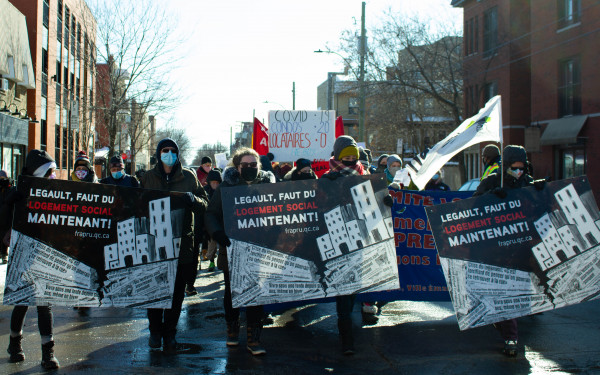Editorial: Quebec must think bigger when it comes to helping students
On March 25, Quebec Finance Minister Eric Girard announced the province’s budget for the next fiscal year, aimed at recovering from the challenges presented by a global pandemic.
Among the notable points of the budget was the announcement of a $100 per semester cheque for CEGEP and university students. The rebate is intended to help students with difficulties presented by the pandemic and to help fund school supplies, according to the provincial government. The benefit will cost $82.6 million and go to over 400,000 students in Quebec.
The thing is, with tuition rising and housing costs skyrocketing, a couple $100 deposits do little to help relieve pressure for students. The money budgeted for this plan would be much more impactful if it were spent funding social services, public infrastructure, or put toward lowering tuition fees as students struggle to make ends meet.
It’s hard to look at this announcement as anything other than a performative gesture. Isolated learning and online classes have taken a significant toll on the performance and, more importantly, mental health of students. Education has gotten worse in the switch to remote learning, but the government has overseen tuition fees creeping up. It’s even worse for international students, whose deregulated tuition is truly onerous. Yet, mental health supports are nowhere to be found.
The federal government issued the Canada Emergency Student Benefit program between May and August 2020, which allowed post-secondary students who had not applied for the Canadian Emergency Relief Benefit or Employment Insurance to receive $1,250 each month for up to four months. This initiative, while unfortunately lower than CERB, was a lifeline to many students when many were still figuring out how to navigate life in a pandemic.
If the provincial government prefers to offer students cash relief, it should be a substantial infusion, looking more like CESB and less like the pittance that the CAQ has put forth in the new budget. It should make a meaningful difference for those who need it. Yet, systemic changes aimed at increasing equity would be even better.
There is also the matter of the housing crisis the government has allowed to spin out of control. The province has struggled with affordable housing, and the new budget only makes a modest commitment to addressing this emergency. Meanwhile, more and more families apply to the long waitlist for affordable homes. Residential complexes continue to be vacated while rent prices only go up.
Montreal is not the only city struggling with offering its constituents affordable housing—the likes of Gatineau, Sherbrooke and Quebec City are also experiencing affordability issues.
The government needs to implement transformational programs that could offer security and opportunity to all. Instead, the Legault government is again showing its apathy toward systemic sources of economic disparity.

.png)



_600_375_s_c1.png)

